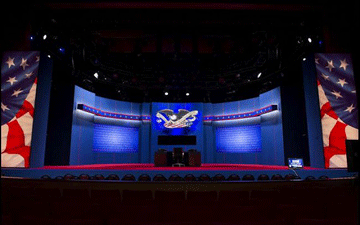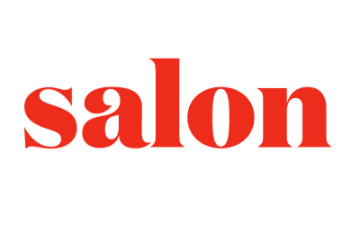
Hana Callaghan is the Director of the Government Ethics Program at the Markkula Center for Applied Ethics at Santa Clara University and the author of “Campaign Ethics, A Field Guide.” Views are her own.
On September 12, 2019, ten Democrats will once again take to the presidential debate stage. This time the debates will be hosted by ABC, but the process promises to be the same as that employed previously by NBC and CNN—ten candidates on stage at once, clamoring to be heard. After four full nights of presidential debating by the Democrats, it is safe to say that political debates in their current form are woefully inadequate in giving us information that we can take to the polls. The sound bites and zingers tossed around on the debate stage give us very little information about what a candidate stands for or how he or she will react in any given situation. In fact, the disinformation being dished out by the campaigns may rival the Russians’ before this debate schedule is completed. The Bachelorette has more information choosing a mate than we do when choosing a president—and we don’t get a do-over like Hannah Brown!
Based on the premise that our political process is born out of the ethical ideal of creating an informed electorate, the Markkula Center for Applied Ethics has developed the following 15 suggestions for improving the political debate process:
- Candidates should agree to ethical rules of engagement before being granted permission to debate.
- Eliminate the live audience except in town hall style debate formats. (This will help to eliminate the circus atmosphere, discourage grandstanding, and allow more time to be devoted to candidate responses.)
- There should be more debates, with smaller groups of candidates. (This will help eliminate the yelling from the candidates on the ends trying to get recognized.)
- The debates should be more conversational and less confrontational- perhaps with moderators and candidates sitting around a table.
- Each debate should focus on a few specific topics.
- Candidates should be given opportunity to respond if his or her policy or record is attacked. (Both NBC and CNN did this, but the time allotted was inadequate.)
- All participants should be allotted the same amount of speaking time.
- Time limits should allow for thoughtful and complete answers-not sound bites.
- Assuming candidates are allowed sufficient time to respond to the moderator or fellow candidate, microphones should be turned off if candidate exceeds allotted time.
- If, after three warnings, a candidate continues to violate debate time or conduct rules, the candidate’s stage lighting should be turned off for the duration of the debate.
- There should be more interaction between candidates and citizens in town hall formats and audience members should be allowed follow-up questions.
- Moderators should ask questions that identify both (a) widely-endorsed public goals and (b) how those goals compete with each other in certain policy questions, asking the candidate to explain how she/he would prioritize or balance those goals in his/her proposed policy.
- There should be hypothetical questions which will reveal the principles that inform a candidate’s decision making. (Let’s find out what makes them tick.)
- Moderators should not ask candidates to raise hands to support or oppose a position without opportunity for follow-up, because such questions suggest the framework for the question is set and simplistic. (CNN got this right.)
- Finally, and perhaps most importantly, debates should be taped with a two or three hour delay for broadcast-so fact checking can be accomplished and be displayed at the same time television audiences are viewing debate. (This will hopefully result in more honest exchanges.)


